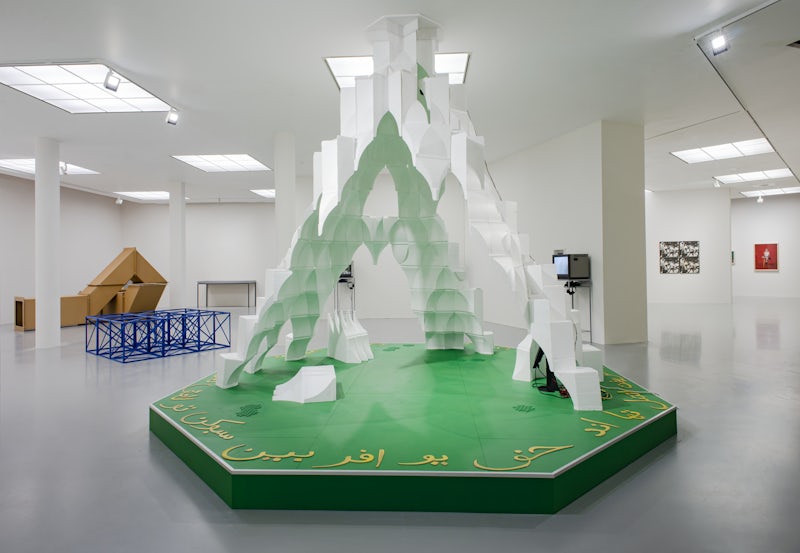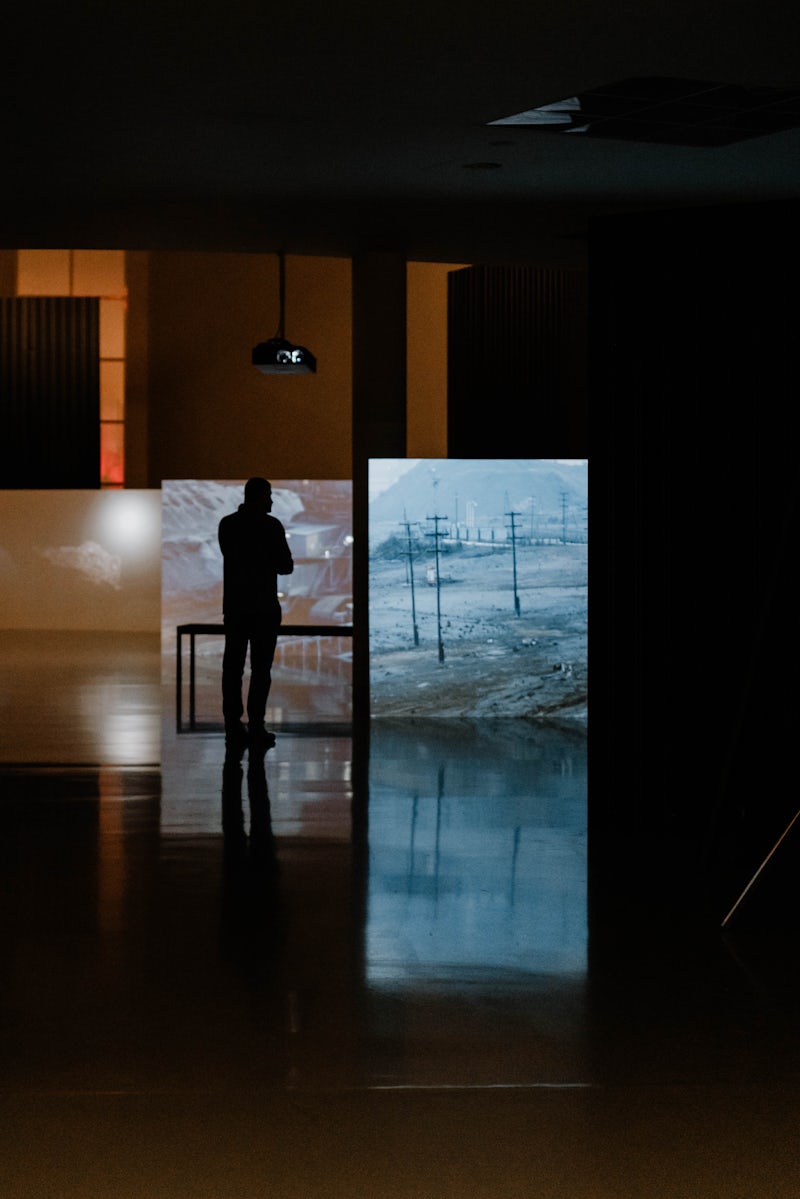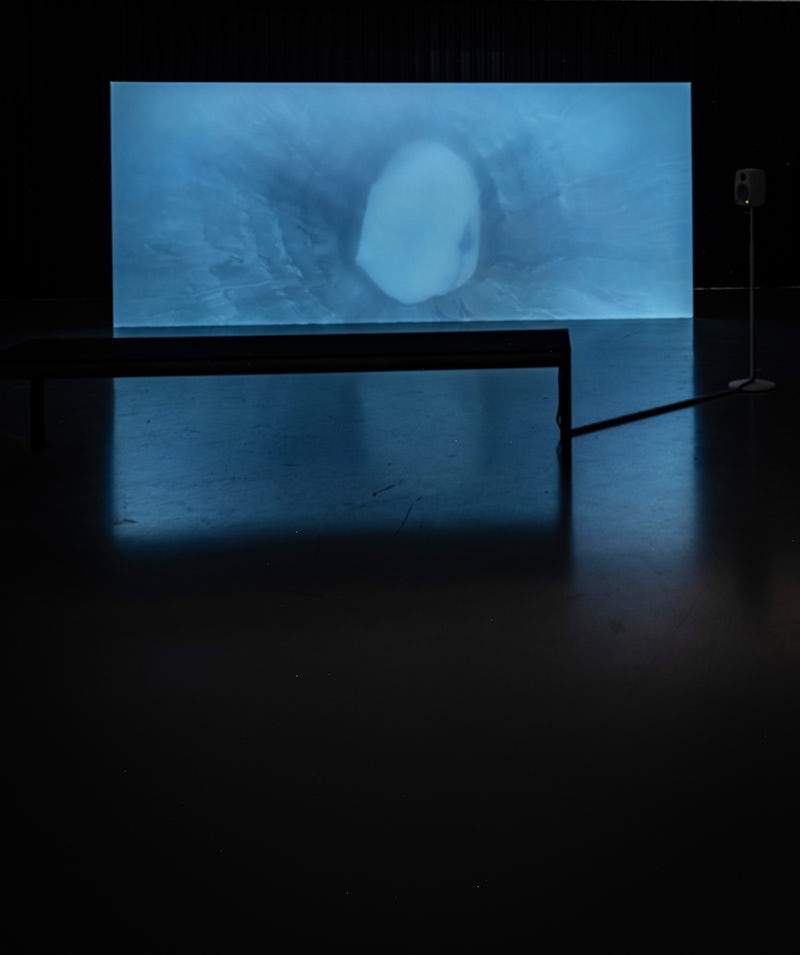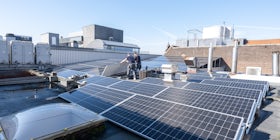
M HKA is now home to 236 solar panels
On April 8th, the museum connected these panels, which were installed on the roofs of the building this spring. Furthermore, the offices and common staff rooms have been equipped with heat pumps.
This marks a new phase of focus – not only on internal production processes and back-office operations but also on addressing the current, restrictive, and challenging infrastructure in terms of ecology, climate, and sustainability. This heightened structural focus directly translates into the artistic programme for 2024 and beyond. In the upcoming year, M HKA is dedicated to showcasing both artists whose individual practices focus on these themes and exhibitions that conceptually delve deeper into them.
Repositionable solar panels
Ecology and sustainability are becoming increasingly urgent concerns, not only in the narrow context of ‘climate,’ but also as broader social awareness. Museums occupy a significant place within society; they are active participants and translate social trends into artistic and public programmes.
In the past, the M HKA has already taken several steps to address the growing concern for ecology, climate, and sustainability in a more conscious manner. For instance, the museum conducted an ecoscan, and the public affairs department rationalised and reduced the printed materials produced in line with visitor comfort and the marketing and communication strategy. In the production department, there is a deliberate focus on circular thinking, achieved through the reuse of sets or the by extending the life of materials for a second, third, or even fourth time whenever possible. One notable initiative that stands out is the recent installation of solar panels.
“Actually, we should have done this much earlier, but better late than never. The climate transition is an absolute priority. The fact that we will soon have a new building should not be an excuse to postpone taking up that challenge now.”
Dieter Vankeirsbilck, business director of M HKA
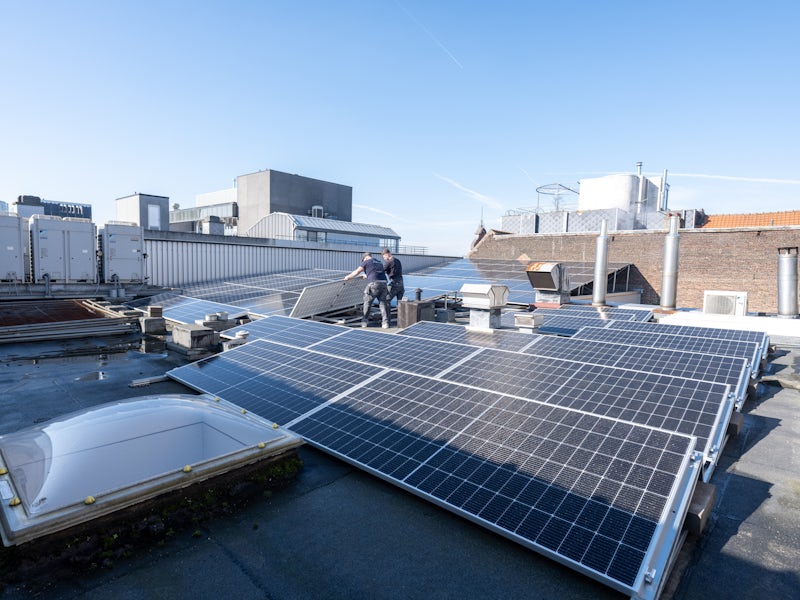
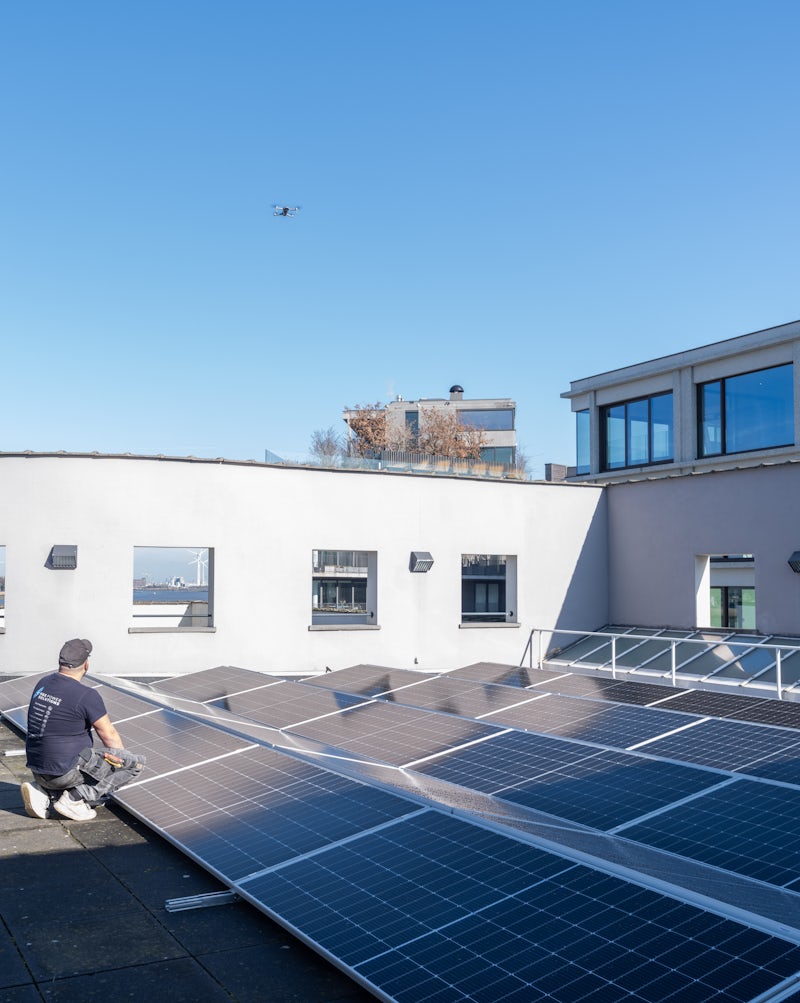
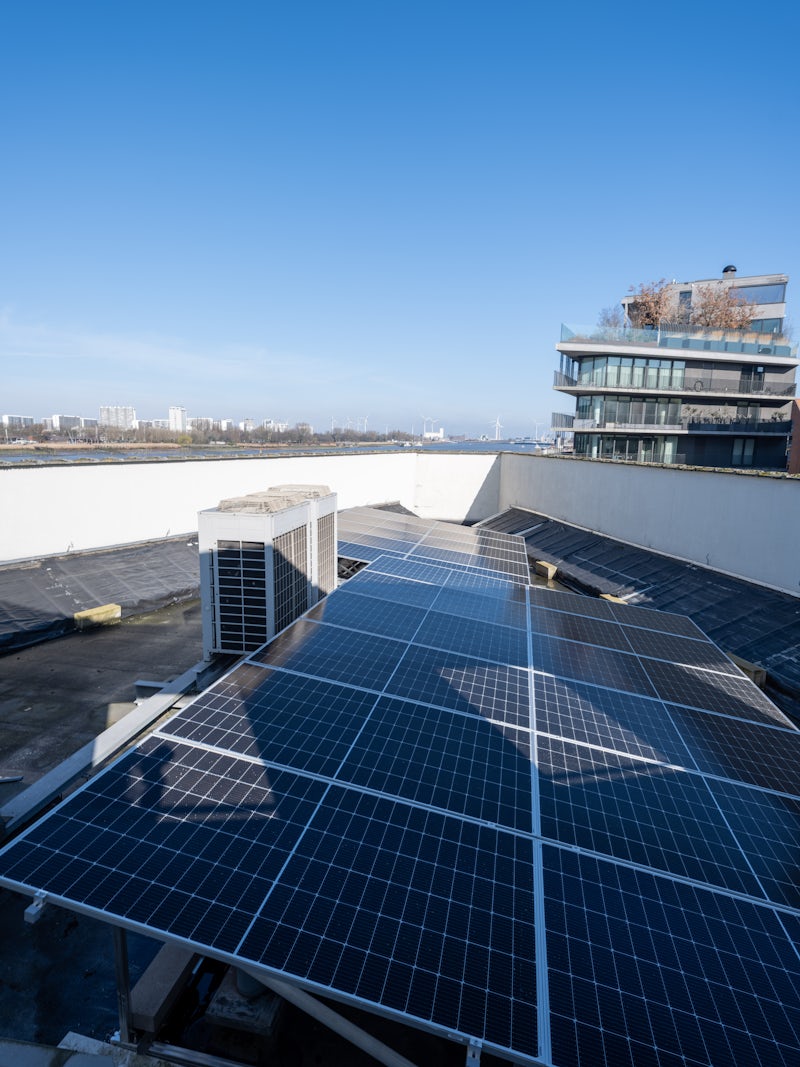
A total of 236 solar panels were installed on all unused roofs of the building, as well as on part of the rear two terraces on the Scheldt side. These solar panels were financed through the museum’s internal operating budget. Solar energy serves as an excellent resource for contemporary art museums with high daytime electricity demands. As a result, the M HKA can expect to recoup this investment within a few years. It is worth mentioning that there was a contractual agreement with the supplier ensuring that the solar panels could be relocated at no extra cost; this allows for their transfer to the new building or to another cultural institution if needed. Additionally, a total of 17 heat pumps were installed in the staff offices and common areas.
A heat pump is a renewable energy generator that utilises low-temperature ambient heat from the air for both heating and cooling purposes.
Cultural sector as international pacesetter
In the coming years, the M HKA also aims to further transform itself structurally as an institution into a more sustainable organisation. The museum believes that the cultural sector can lead the transition to a more sustainable future and take actions that can significantly reduce its negative environmental impact. The M HKA collaborates with other museums, cultural institutions, artists, and activists to work towards such a future. It implements guidelines developed to promote environmentally conscious aspects of sustainability, including climate justice and awareness, reducing emissions and waste, and fostering responsible consumption. In other words, ecology serves as a central focus within its operations, encompassing building management, resource allocation, collection care, and exhibitions. The M HKA also maintains a direct and substantive focus on the theme, which is shared with the European museum confederation L’Internationale, an organisation it co-founded.
The confederation has long dedicated significant attention to ecology, exemplified by publications such as the e-pub “Ecologising Museums” (2018) and the book “Climate: Our Right to Breathe” (2022). ‘Ecology’ is now also one of the three main themes in the Museum of the Commons, L’Internationale’s current cycle. Within this framework, the M HKA is developing several activities with various connections to this theme.
Circular construction
On the horizon, a new building for the M HKA is emerging, slated to occupy the current site of the Court of Appeal. The M HKA is presently engaged in an infrastructure project with the Department of Culture, Youth and Media and the Facility Management Company, demonstrating a deep commitment to sustainability as part of its overarching approach. The future infrastructure is outlined in the Flemish Climate Strategy 2050. This encompasses circular construction as a strategy, with a meticulously planned and rational shell and an open plan layout that facilitates flexible use of the building and adapts to evolving needs over time. The use of raw materials will be restricted, with a preference for renewable and readily available materials and resources. The new building project for the M HKA aims to serve as a testing ground for the future, focusing not solely on making the infrastructure sustainable, but also on prioritising entirely sustainable operations. In this endeavour, the Flemish Community firmly believes that architecture should prioritise functionality. Designing for ease of maintenance and efficient operation ensures longevity and sustainability for the building’s entire lifespan.
